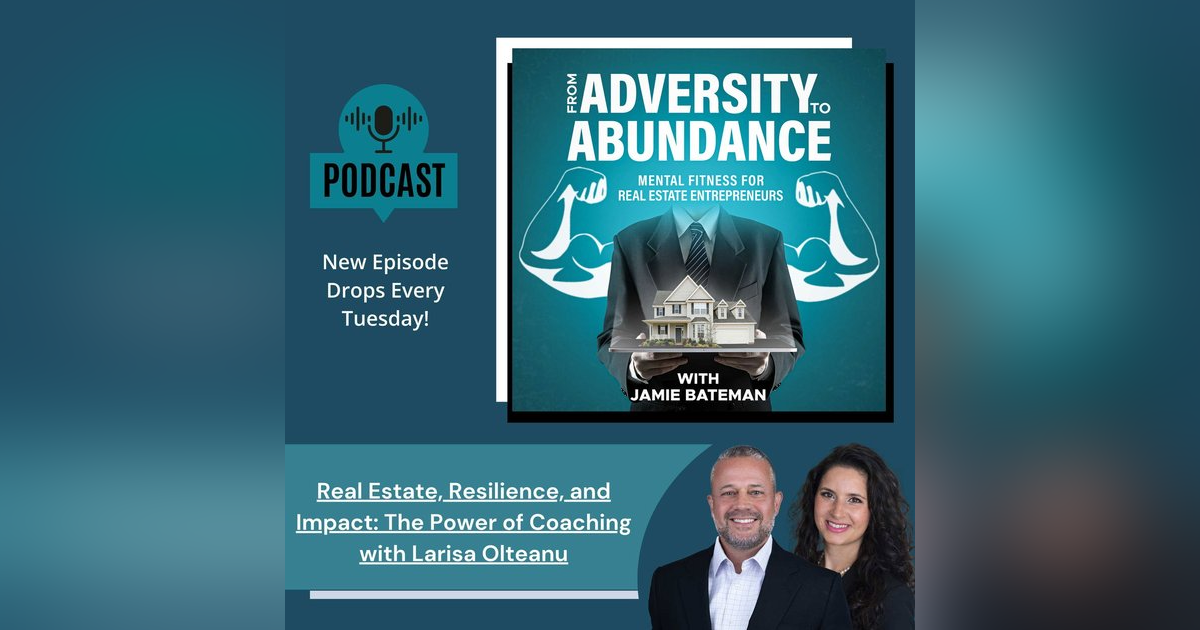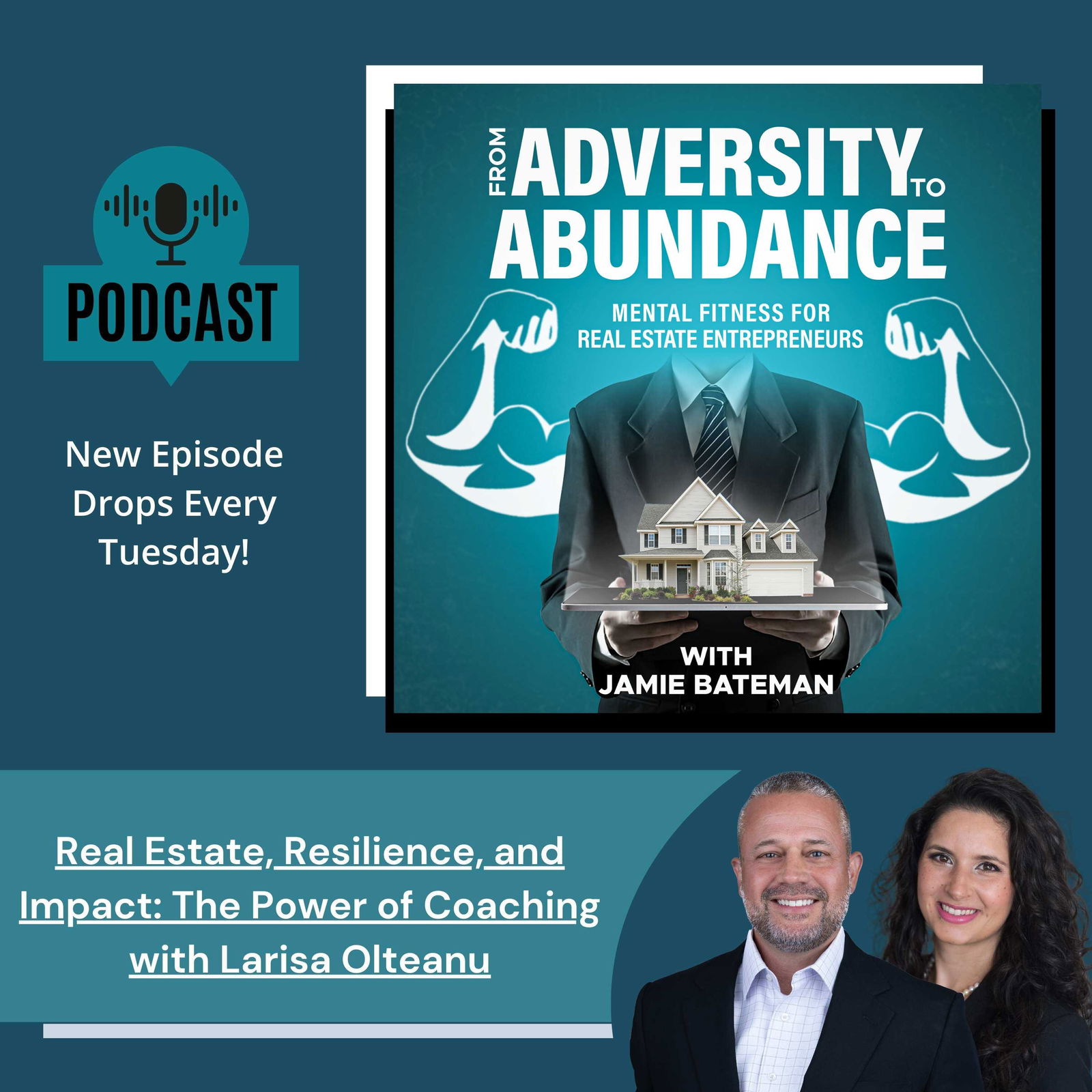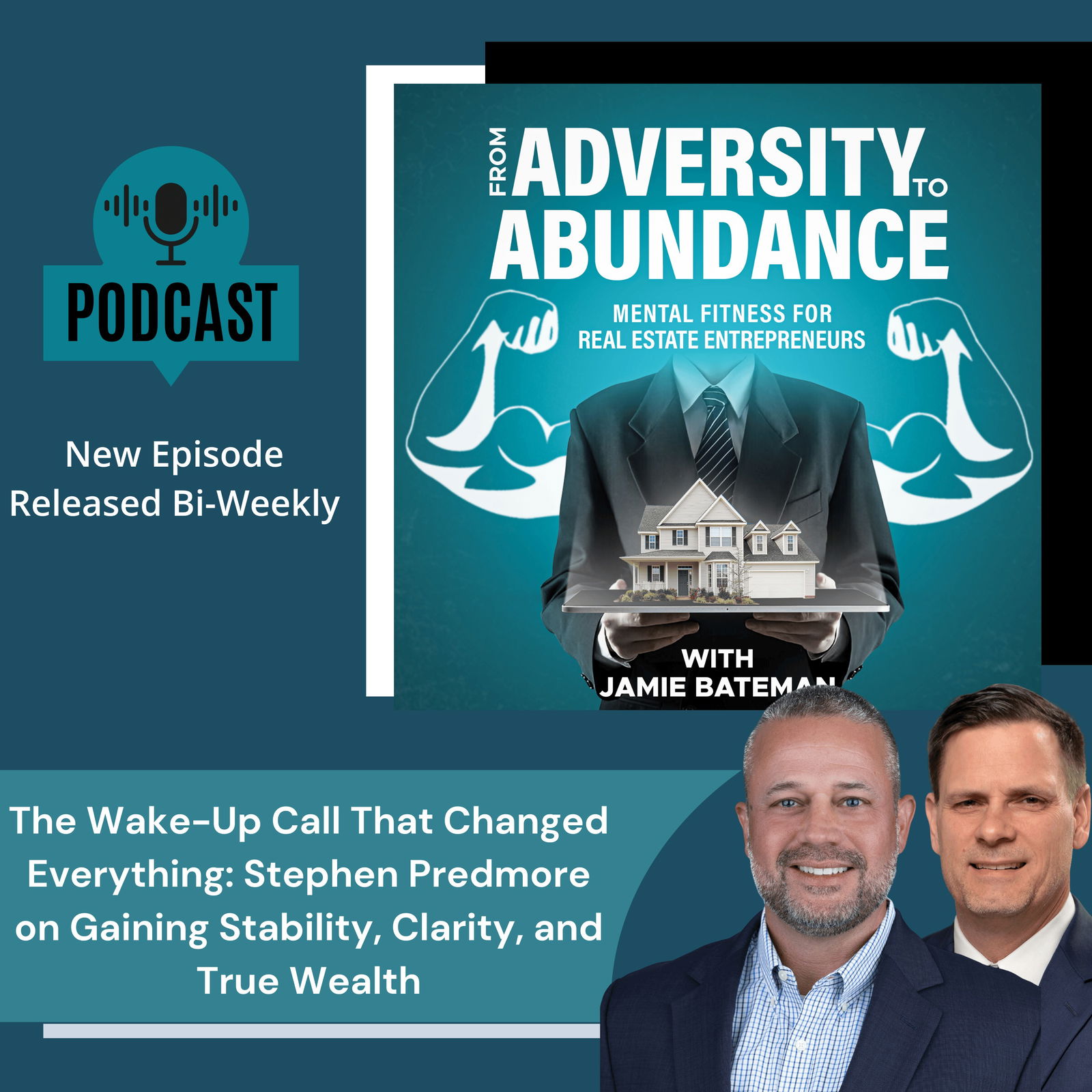Real Estate, Resilience, and Impact: The Power of Coaching with Larisa Olteanu


In this episode of From Adversity to Abundance , host Jamie Bateman speaks with Larisa, an inspiring real estate coach and investor, about her journey from humble beginnings to achieving financial success. Larisa opens up about overcoming personal challenges and the importance of mindset in building wealth through real estate.
Guest Introduction:
Larisa
A successful real estate investor, coach, and author of the New York Times bestselling book Destined for Wealth . Larisa shares her experiences and insights on how a mindset shift can transform your life and career.
Background Stories:
Larisa’s Journey:
- Born in a small village, Larisa arrived in the U.S. without connections or speaking English. Despite these challenges, she built a real estate portfolio and now coaches others to do the same.
- Her biggest accomplishment isn’t her portfolio but the lives she’s transformed through coaching.
Client Success Story:
- Larisa recounts a powerful story of a client named Jimmy who was in debt and stuck in a 9-to-5 job. Within months of coaching, Jimmy transitioned to running a multimillion-dollar business and eventually launched a major coffee manufacturing facility.
Key Discussion Points:
- The importance of starting with one investment and sticking with it to build momentum.
- Mindset as the key driver for success in both real estate and life.
- Balancing the demands of real estate with being a present mother.
- The value of helping others and the ripple effect of impacting lives through coaching.
Practical Takeaways:
- Start small, but just start. The journey to wealth begins with taking the first step and staying committed.
- Shift your mindset to see opportunities in every challenge and think beyond just monetary gains.
- Building relationships and helping others can have a profound impact on your own success.
Connect with Larisa:
Website: www.unshakablewealth.com
Instagram: www.instagram.com/unshakablewealth
Facebook: www.facebook.com/unshakablewealth
Pinterest: www.pinterest.com/unshakablewealth
Free Real Estate Course: Visit her website for a completely free real estate course that offers a comprehensive guide to getting started.
Integrity Income Fund:
https://app.myleadbutler.com/v2/preview/durLfkDjZHoJstX54tWe?notrack=true
—
Labrador Mentorship:
labradorlending.com/investors/active-investors/
—
Haven Financial Services:
Learn more: jamie.myfinancialhaven.com/
—
Purchase Jamie’s Book: www.amazon.com/dp/B0CGTWJY1D?ref_=pe_3052080_397514860
—
Leave us a REVIEW: podcasts.apple.com/us/podcast/from-adversity-to-abundance/id1618672867?mt=2&ls=1
www.adversity2abundance.com/reviews/new/
—
Podpage:
Calling all aspiring podcasters and seasoned pros! Transform your podcast with a stunning website in minutes. Sign up for Podpage today to effortlessly grow your audience with our easy-to-use tools.
Sign up here: www.podpage.com/?via=jamie-bateman
Connect with us
Website: www.adversity2abundance.com
Facebook: www.facebook.com/profile.php?id=100089126144055
Instagram: www.instagram.com/adversitytoabundancepodcast/
LinkedIn www.linkedin.com/company/89949391/admin/feed/posts/
Youtube: www.youtube.com/@FromAdversity2AbundancePodcast
Connect with Jamie
LinkedIn: www.linkedin.com/in/jamie-bateman-5359a811/
Twitter: twitter.com/batemanjames





